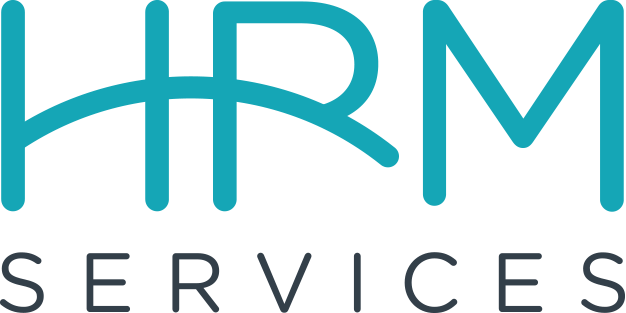
Welcome to January’s HR Hot Topic!
This month, we’re focusing on independent contractors. And you know, I feel like this pops up from time to time because the courts and government can’t seem to agree on what it truly means to be an independent contractor.
So here we go
Yet again, the Department of Labor has proposed a new rule for how employers should decide whether or not someone is truly independent versus being a W2 employee on your payroll. Part of this proposed rule is to rescind a 2021 interpretation of independent contractor status. Now, in the 2021 interpretation of independent contractor status, there was a move to sort of simplify this testing that employers have to go through.
This is really focused on two primary questions. One, how much control over the work does this independent contractor have? And two, how much opportunity does the independent contractor have for profit or loss with this project? So in 2021, that was really the focus of the rule. Well, this Department of Labor seems to think that was not effective enough and that too many workers were still being misclassified as independent when they truly should have been W-2 employees. This has implications on taxable wages, right? As the employer, if somebody is a W-2 employee of yours, you are paying payroll taxes on their behalf to the IRS. So the federal government has the vested interest in making sure they can capture as much of that revenue as they can. And your independent contractors, aside from not having to pay the payroll taxes and some of the insurance components that you do for your payroll staff, are also not subject to the Fair Labor Standards Act.
There’s no required minimum wage, no required overtime, and they’re not covered by most employment laws either. So you can see why employers really want to decide intentionally whether or not somebody should be on their payroll as a W-2 employee, or whether they can contract out that service to an independent contractor or a third party vendor. But sometimes employers misclassify and lean more towards independent contractor when really that’s not the case.
Over the years, there have been a series of tests that have been published – some by the IRS, some by the Federal Government Department of Labor – to help employers decide which label is most appropriate. And here we go again, at the end of 2022, the Department of Labor proposed a new rule for how independent contractors should be classified. The comment period for that proposed rule ended mid-December, and we’ll expect to see the final rule come out sometime this year.
I also wanted to share with all of you that in the proposed rule, rather than focusing on those two key questions I outlined earlier, they’ve instead expanded that and they want employers to weigh six criteria equally. I’d like to share those criteria with you in case you have anyone who’s currently classified as independent.
- Criteria number one, opportunity for profit and loss. That was something that we saw before. So that’s not new.
- Number two, amount of skill required to do the work. Oftentimes, the less skill that is required, the less ground you have to classify that person as an independent contractor.
- Criteria three, the degree of permanence of the working relationship. Is this truly project-based or episodic? If so, it might lean more in favor of independent contractor. Is this an ongoing relationship? Leans more in favor of W-2 employees.
- Criteria number four, the workers and the employers investment in equipment and materials required for the task. So are you, the employer, providing the equipment that that person’s going to use to do the work? If the answer is yes, it leans more towards employee criteria.
- Five, the nature and degree of control over that person’s time and the work they do. Again, that’s similar to what we look at now.
- And six, the extent to which the service rendered is an integral part of the employer’s business.
The idea here is that if you’re paying somebody to do work that is core to those services or the goods that you provide to the general public, the more core they are to your business, the more likely that person should be classified as an employee versus an independent contractor. So this proposed rule really gives direction that you should evaluate all six of those criteria, and that there’s no one that’s more important than the other.
Again, employers are left wondering what to do. Anytime you’re trying to make this classification, it’s always best to consult with professionals like a financial professional or accountant, because there are tax implications. It never hurts to run it by an employment law attorney or someone like us, an HR consultant, just to make sure you really have justification for the decision you choose. Because if you missclassify employees, it can be very, very costly – which is really the focus of this month’s episode.
But before you go, I have a very exciting announcement. I sort of teased this a little bit in December’s email message, so hopefully you’re all subscribers to our email list.
Back in December, I told you all to stay tuned in January because I’d be announcing new content offerings from HRM Services. Well, here’s what we’d like to do. We get such a great response to these monthly videos – they’re short, they’re sweet, they’re to the point. Will does an awesome job producing them. Very timely, right? But there are some topics I think you all have interest in as employers that can’t be covered in 5, 10, 11 minutes, right? They require a much deeper dive, maybe not hours and hours, but something more like 20 to 30 minutes. So what I’d like to introduce for the year of 2023 is a content lineup, four to six episodes, where we dive deep into topics that are of value to you and are pain points for you right now.
Each episode will be videotaped, and we’ll have additional links and resources like we always do. I’ll have guests coming on, maybe a few clients. So if you’d be comfortable in front of the camera and would like to be featured in one of these episodes, please let me know. It could be a subject matter expert. It will absolutely be someone from the HRM Team, maybe not me. It’ll give you a chance to really get to know the team better too.
Two of the topics we’re considering for 2023: one of them is how to manage a remote workforce. It’s different than how you manage in-person work. And another one has to do with creating an effective productive corporate culture. You hear a lot about culture, and you’re going to hear more and more about it as this new generation, Gen Z, sort of comes into the workforce because culture is so important to that group.
But what is it and how do you measure your current status in terms of culture? And what are some key things that you can be doing to move the needle in the direction you want to in terms of cultural enhancement? So we’ll dive deep into culture too. Those are just two. But as I said, we’re planning to make four to six of these in 2023. So the rest of the content lineup is up to you. We’ll be sending out a survey to all of you, and you’ll have a chance to list out a topic, an area of interest that you would like us to dive deeper into. And based on the responses, we’ll go ahead and build out the rest of that content calendar. These episodes in 2023 will be free to anyone who’s a subscriber on our email list.
We’re very excited, and happy to have some participation from those of you who have been faithful viewers for us all these years now. With that, I’ll leave you and look forward to talking to you next month!

